Romanians and Bulgarians working in UK up 26%
- Published
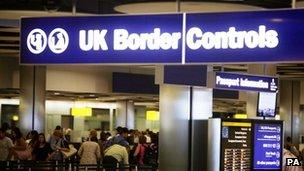
Restrictions on the type of jobs that can be taken are due to be lifted
The number of Romanians and Bulgarians working in the UK rose by nearly 26% between April and June, figures show.
The Office for National Statistics said 141,000 had been employed in that period, compared with 112,000 in the previous three months.
Campaigners for tighter controls claim there will be a bigger rise next year as rules on the type of jobs people from the two nations can do expire.
The Home Office said citizens of the countries made up 0.3% of UK employees.
BBC political correspondent Susana Mendonca said the issue of migration from Romania and Bulgaria was a controversial one.
The government has not said how many more migrants it expects once the labour market is open fully to the two countries later this year.
Labour urged the government to do more to address the potential impact on infrastructure and public services.
'Unexpected uptake'
Migration Watch UK, which campaigns for tighter controls on immigration, said the latest figures were in line with its estimate that net migration from Romania and Bulgaria would stand at about 50,000 a year for the next five years.
"We hadn't expected this early uptake - quite a considerable increase - nine months before our labour market is open and I think it does suggest that there's a good deal of interest in these countries in coming to work here," Migration Watch chairman Andrew Green told BBC Radio 4's Today Programme.
It backed up opinion polls suggesting migrant workers were making "concrete plans", added Sir Andrew.
"It's not surprising, because take-home pay here will be four or five times what these workers will get at home," he said.
Sarah Mulley, associate director for migration and communities at centre-left think tank the Institute for Public Policy Research, agreed the early increase was surprising but said that instead of focusing on the figures the government should "make sure that we're prepared whatever the numbers are".
"I think that's what people are most worried about on the ground rather than this national-level discussion about population and numbers," she added.
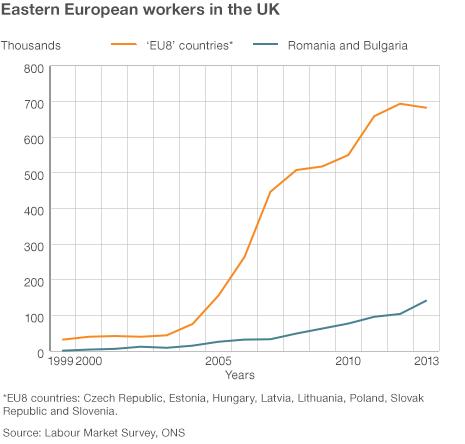
The number of Romanian and Bulgarian workers coming to the UK between April to June increased at a greater rate than other nationalities.
But the Home Office said overall more people from western EU countries had come to work in Britain in the period.
Bulgarians and Romanians have had the right to visa-free travel to the UK since 2007 when their countries joined the EU. But there have been temporary restrictions, external on the kind of jobs they could take.
Access to the UK labour market was limited to the registered self employed, and under a quota system to people working in low skilled jobs in food processing and seasonal agricultural work. Companies could also employ skilled staff if they obtained a work permit.
The restrictions will be dropped at the end of the year in accordance with EU rules.
Diplomats from Bulgaria and Romania have repeatedly stressed that they are not expecting a "wave" of migration from their countries.
'No soft touch'
The UK government is considering limiting migrants' access to benefits, healthcare and housing.
A Home Office spokesman said: "We welcome those that want to come here to work and contribute to the economy."
But he added: "Those who are tempted to come here to try and abuse public services should know that we are not a soft touch.
"We are focusing on cutting out the abuse of free movement between EU member states and addressing the pull factors that drive European immigration to Britain.
"Across government, we are working to ensure that our controls on accessing benefits and services, including the NHS and social housing, are amongst the tightest in Europe to protect the UK from abuse."
Shadow immigration minister Chris Bryant said ministers needed to publish their own estimates of the numbers they expect to arrive so local authorities can make "proper plans".
He added: "They should be taking action now to prevent any increase in exploitation of migrant workers distorting the labour market yet further next year.
"And they are still doing nothing to address enforcement of the minimum wage, use of agencies targeting only foreign workers, or training and skills shortages in key sectors like hospitality."
- Published16 August 2013
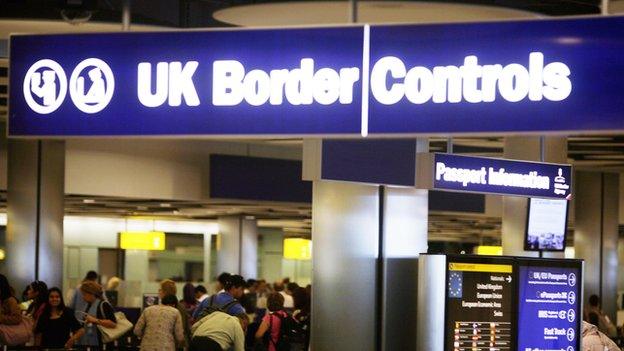
- Published15 May 2013
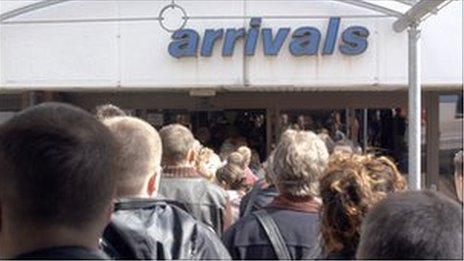
- Published14 May 2014
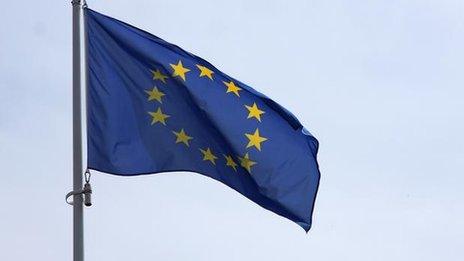
- Published23 April 2013

- Published20 February 2013
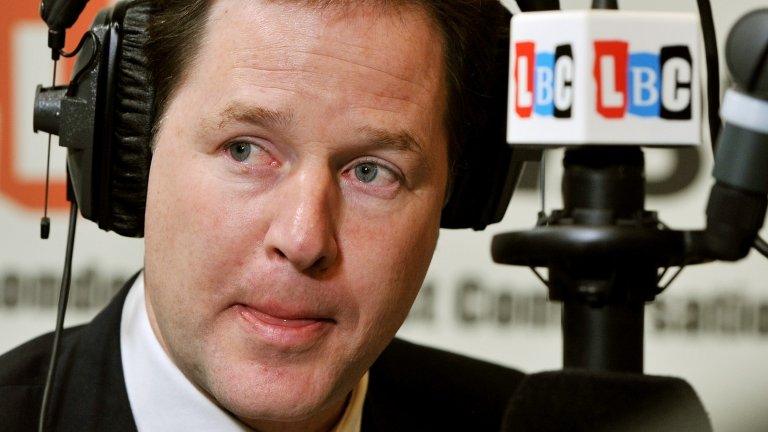
- Published14 February 2013
